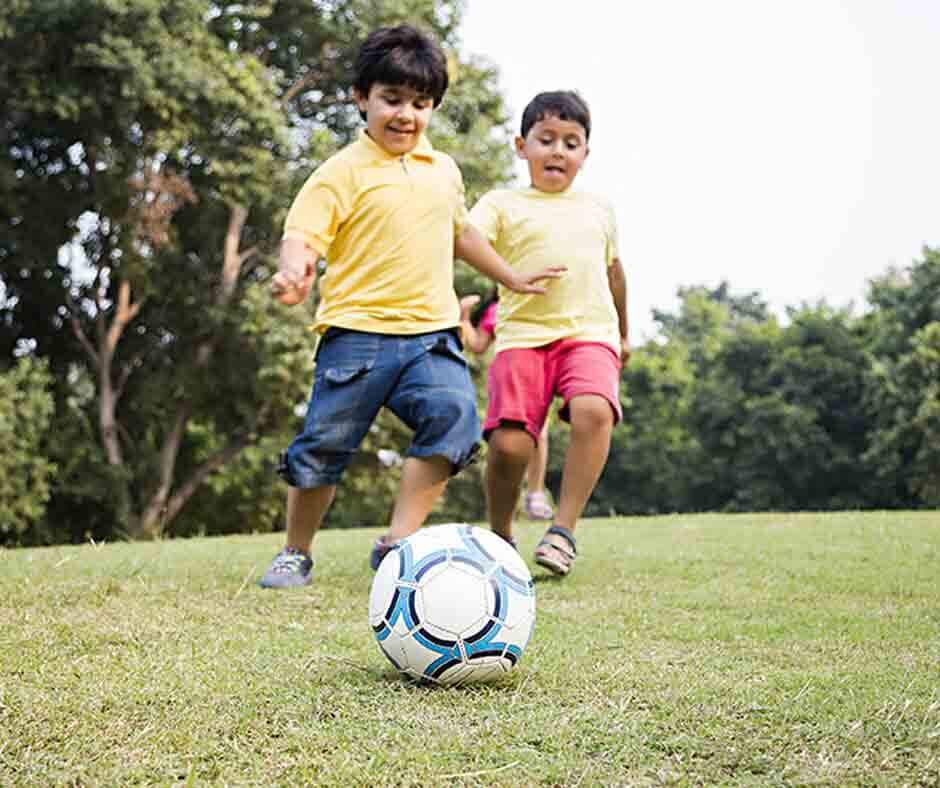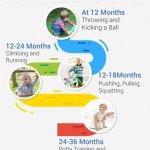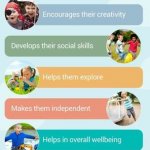7 Delightful ways in which FREE PLAY benefits children!

In school, children study for grades, learnings, applause and recognition. In adult-monitored sports, they work for praise and trophies. In free play, children do what they want to do. The learnings, the psychological growth and the emotional development that results, are byproducts and not the primary goals of the activity.
How Free Play benefits children
-
It is through free play that children first learn how to make decisions involving a group.
Play involves other children. Interests may be different. Needs may be different. Skills may be different. Moods may be different. Mindsets maybe different. Yet, decisions must be taken that impact all of them.
At home, a tantrum may get them what they want. At home, they may be pampered. At the playground, everyone wants what they individually want. And yet, decisions must be taken, that appeals to the majority.
Whether a child is an extrovert or not, whether a child is vocal or not, whether a child is gifted or not, this interaction, this pull of ideas, this experience of witnessing contradictory needs, teaches a lot to the child.
Whether they are mute participants witnessing the unfolding of a decision, or they are the ones who are helping the decision unfold, all of them are learning a lot.
If a child is not involved in a free play, it is difficult for the child to learn this on his own.
-
It is through free play that children learn how to solve unanticipated problems.
As they are playing, the ball might get lost. There is no other ball available. How to manage now?
As they are playing, a key player might be called back home as he is late for his studies. In spite of their heartfelt pleas, he decides to leave. His team members are crestfallen. They deeply want to win. The opponents are celebrating. How to strategize now? More importantly, should they ever take that fellow who left, ever again in their team.
As they are playing, a ruckus is being created. An old grandfather objects to they playing. They are barred from playing any game that makes noise. Now, what will the children do?
For the adults, there may be non-issues. For the children, this is LIFE. How they tackle situations like these, teach them a lot and makes them ready for adult life.
-
It is through free play that children learn how to maintain self-control.
At home, they will be loved, even if they are wrong. At home, they will be forgiven, if they make blunders. At home, a sorry means they will be forgiven. Game friends are not necessarily so kind. They may carry grievances for a long time. They might be violent. They might be sarcastic. They may spread rumors about the children too.
To avoid all this, self-control is required.
In a game, let’s say Cricket, a tendency can be to play heroic shots. The situation may need the batsman to be tentative. There! The child has to practice, self-control.
-
It is through free play that children learn how to follow rules even if they do not like them.
As children direct their own free play and solve the problems that come up, they learn how to exert control over themselves. At times, keeping the larger interests in mind, they accept restrictions on their own behavior and follow the rules even when they do not want to. If they want to play, they know they need to follow rules.
-
It is through free play that children learn to handle their emotions, including anger, fear, jealousy, and frustrations.
In free play, children put themselves in challenging situations and learn to control the emotions that arise from these situations. They role play, they wrestle, they push, they rough it out, they climb trees, they break their comfort zones. Such activities are fun to some, scary to most.
Sometimes, unfair things happen. Sometimes, they are not able to perform. Sometimes, they let the team down. Sometimes, someone else gets the attention they want. All of these situations, create emotions ranging from mild to extreme. Sometimes, it leads to heartburns, accusations, even breakdowns. All of these creates undulating emotions. And the kids LEARN.
Later on, when similar emotions appear, although the situations are different, the children feel that they have ‘been there, done that’. Anxiety and depression cannot consume them. Children have learned how to handle their emotions and overcome them.
Adults who did not have the opportunity that free play provides to experience and cope with moderately challenging emotional situations are more at risk of feeling anxious and overwhelmed by emotion-provoking situations in adult life.
-
Free play helps children make friends and learn to get along with each other as equals.
Social play is a natural means of making friends. Since the free play is voluntary, playmates may abandon the game at any time if they feel uncomfortable. Children learn to be aware of their playmates’ needs and a stretch to meet these needs in order to continue the game.
Learning to get along and cooperate with others as equals, may be the most crucial evolutionary function of adult human life. The decline in play may be both a consequence and a cause of the increased social isolation and loneliness in today’s culture.
-
Probably the most important benefit of play is that it is a source of happiness to the kids.
Ask any child about activities that make him happy. Chances are very high, they will say they are happiest when playing with friends. Perhaps your fondest memories of your childhood are also around the ‘free play’ times that you had.
Look at the irony. Stressful performance activities have taken the joy of free play.
How funny can it be? As a society, to protect children from physical harm and to make them more employable, we deprive them of the very activity that makes them happiest and replaced it with activities designed to produce anxiety and loneliness.
As children negotiate both their physical, emotional, psychological, and social environments through play, they gain a better understanding of their world. It is this aspect of play that offers enormous psychological benefits, helping to protect children from anxiety and depression.
Research shows that children who do not have the opportunity to make their own decisions, to solve their own problems, to learn how to follow rules in the course of play, to learn how to channelise their emotions, to make friends easily, to be happy with themselves, grow up feeling that they are not in control of their own lives and fate. They grow up feeling that they are dependent on luck and on the goodwill and whims of others….”
The loss of free playtime sets the scene for anxiety and depression.
Leave A Reply
You must be logged in to post a comment.





Comments
Another useful post. We have not enrolled my child in specific classes till now because I want him to be utilize his evenings just playing whatever enters his fancy.
Hmmm, that is so interesting…how did you do it? Did peer pressure have no effect on you? Would love to know your thoughts…
A very well written post. Great points mentioned 🙂
Thanks a ton for your kind words…All the best in parenting your kid
You have brought out all the valid points here and the best one being “It Is Through Play That Children Learn How To Follow Rules Even If They Do Not Like Them” because these days kids think they are the boss and the world will abide by them no matter what!